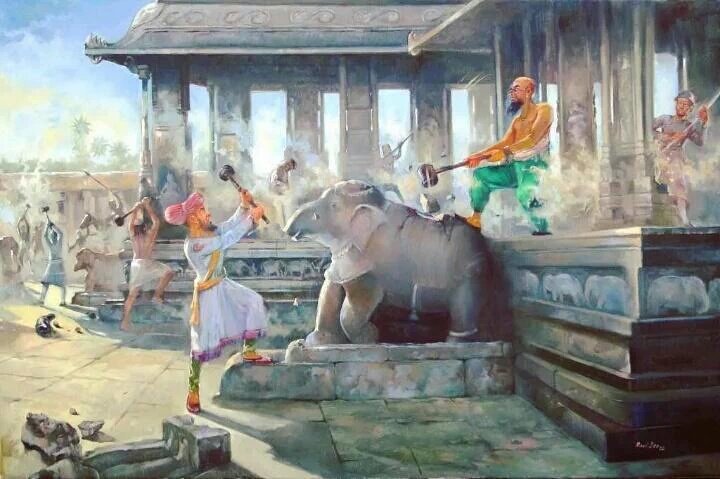For centuries, India has been a land of diverse religions and cultures, including Hinduism and Islam. However, religious conflicts and disputes have often hindered peaceful coexistence between communities. One such issue that has been a point of contention between Hindus and Muslims in India is the reclaiming of ancient temples that have been under Islamic occupation for centuries. Here, we will explore how the reclaiming of these temples can lead to Hindu-Muslim unity and peace.

The issue of temple reclamation is not a new one. Many ancient Hindu temples have been destroyed or converted into mosques during the Islamic invasions and subsequent Muslim rulers’ reign. The reclamation of these temples has been a longstanding demand of the Hindu community, with many of these temples being of great significance to Hindus.
The reclaiming of ancient temples is not just about restoring the sanctity of Hindu religious sites; it is also a matter of restoring the dignity of the Hindu community. The occupation of these temples has been a source of great pain and humiliation for the Hindus. The reclaiming of these temples is, therefore, an assertion of their identity and a demand for justice.
However, the reclaiming of ancient temples is not a call for revenge or retribution. Instead, it is an invitation for Muslims to recognize and respect the sentiments and beliefs of the Hindu community. The reclaiming of these temples is an opportunity for Hindus and Muslims to come together and celebrate their shared history and culture.
The reclaiming of ancient temples can also be a catalyst for promoting interfaith dialogue and understanding. The occupation of these temples has been a source of mistrust and suspicion between the two communities. By reclaiming these temples, Hindus are sending a message of goodwill and inclusiveness. It is an invitation to the Muslim community to recognize and respect the Hindu community’s sentiments and beliefs.
Furthermore, the reclaiming of ancient temples can have a positive impact on Hindu-Muslim relations. The reclaiming of these temples is not just a demand for justice and equality, but it is also a recognition of the shared heritage of India’s diverse communities.
The reclaiming of ancient temples can also be a means of promoting spiritual and cultural tourism leading to economic development. Many of these temples are of great historical and architectural significance. The restoration of these temples can attract devotees from all over the world and provide a boost to the local economy. The restoration of these temples can also provide employment opportunities to the local population, thereby promoting economic development.
However, the reclaiming of ancient temples is not without its challenges. The process of reclaiming these temples can be a long and tedious one. It involves legal battles and negotiations with the government and Muslim communities. The reclaiming of these temples also requires a great deal of financial resources and technical expertise. It is, therefore, important to approach the reclaiming of these temples with patience, perseverance, and a spirit of cooperation.
In conclusion, the reclaiming of ancient temples under Islamic occupation is not just a matter of restoring Hindu religious sites’ glory. It is a matter of restoring the dignity of the Hindu community, promoting interfaith dialogue and understanding, and promoting cultural tourism and economic development. The reclaiming of these temples can be an opportunity for Hindus and Muslims to come together and celebrate their shared history and culture, ultimately leading to Hindu-Muslim unity and peace.
#ReclaimTemples

